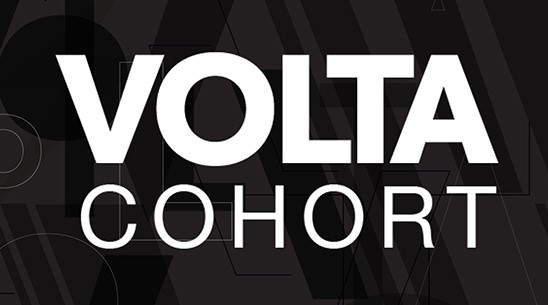Social ventures were the big winners at the Volta Cohort pitching event on Wednesday, as five companies addressing problems like food insecurity and plastic waste were awarded a total of $125,000 in funding.
The five winners, which will each receive $25,000 in early-stage investment, were chosen from a field of 15 finalists. In addition to the money, the final five will receive access to mentorship and office space.
"All of these companies will have tangible impacts on their respective industries and sectors, and it is inspirational to be part of supporting these founders,” said Volta CEO Martha Casey in the statement. “Many Volta Cohort companies have gone on to significant national and international success, and Volta is proud to support their growth.”
The five winners are:
● Drastic Scholastic Thermoplastic, Antigonish, NS – Drastic Scholastic is a waste-management company that converts plastic waste into pellets that can be sold to manufacturers. Most plastic ends up in landfill, and DST is working to recycle more of it through a four-phase process involving shredding, decontamination, injection and extruding. Founder Adam Starr said the company is already working with St. Francis Xavier University on recycling its waste and in talks with a manufacturer interested in buying the pellets.
● Food for Thought Software Solutions, Halifax – Food for Thought helps Canadian children access nutritious food while reducing the stigma around food insecurity. Of the 5 million children in school in Canada, 1.2 million come from food insecure homes, and sisters Melissa and Shandra MacMaster want to help them. Food for Thought has developed a platform that lets any parent order lunches for their children to be delivered from a restaurant to the school. Parents pay what they can, so well-off families can pay $5, for example, and others pay less or nothing. Restaurants deliver meals to the schools and every child receives the same package, regardless of what their parents paid. Food for Thought has already arranged the delivery of 345,000 lunches, and restaurants have been paid $2 million through the program.
● PLAEX Building Systems, Hampstead NB – This company converts difficult-to-recycle plastic waste into durable, interlocking bricks that can be used and reused in low-rise construction. “We turn waste or garbage into a resource,” said CEO Dustin Bowers. PLAEX, which recently joined the Energia Ventures accelerator, converts waste plastics into a building material which it forms into interlocking bricks. Initially, it plans to use the bricks for flood walls or retaining walls, and eventually move into foundations for houses. The company, which is testing the product with the University of New Brunswick, intends to begin manufacturing in New Brunswick, then licence the technology to other places.
● Pressto, Halifax – Pressto helps students to develop media literacy, critical thinking and writing skills by making journalism accessible. “The problem that we solve is that writing tools suck,” said CEO Daniel Stedman. “It’s not fun for students to learn [with them] . . . and the main problem is that students are not learning media literacy.” The company helps schools develop student newspapers, and it has already signed up a school board in New York. Pressto, which has raised $150,000 in funding, hopes to be in 1,000 classrooms this September and then 1,000 schools a year later.
Read our Recent Report on Pressto
● Tribe Network, Halifax – Tribe is a digital platform in which Black, Indigenous and People of Colour can accelerate ideas, build communities and access opportunities. The company helps BIPOC entrepreneurs link with organizations that can help them develop their companies. In two months, it has signed up 65 entrepreneurs as users and brought in $40,000. Its target is to get 750 users and $300,000 in revenue by the end of the year. The system can be used by members of any ethnic group. “We’re not going to be excluding anyone from joining the network,” said Founder Alfred Burgesson. “If you’re interested in helping to support BIPOC entrepreneurs, it doesn’t matter the color of your skin. You’re welcome to join the network.”
Read our Report on the Launch of Tribe Network
Halifax-based startup hub Volta holds a Cohort competition once every six months, choosing as many as five companies to receive funding. The investment capital is from a fund co-founded by Volta, Innovacorp, BDC Capital and the Atlantic Canada Opportunities Agency.
The Cohort program also provides past winners with follow-on investment as long as they meet specific criteria. It means these companies will receive total investment of $50,000 from Volta Cohort.








